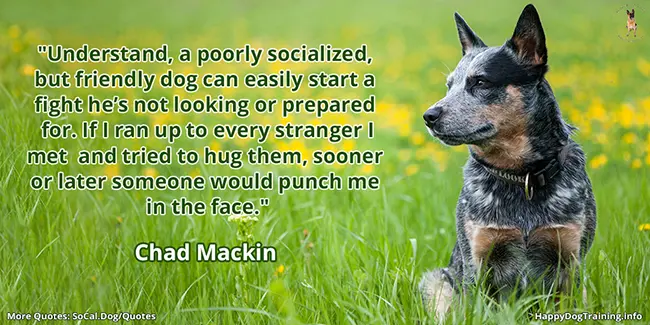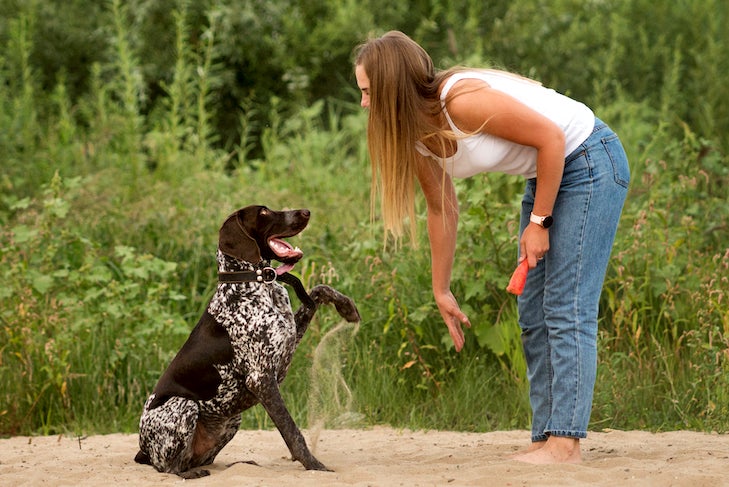Unleash Potential with Dog Training Near Me: Discover Your Local Professionals
Unleash Potential with Dog Training Near Me: Discover Your Local Professionals
Blog Article
Unlock Your Pet dog's Prospective: Proven Pet Dog Training Techniques for Success
Reliable canine training is a nuanced process that rests on comprehending canine habits and employing medically backed methods. dog training near me. By integrating favorable support, establishing clear commands, and focusing on socialization, pet owners can cultivate an efficient partnership with their pets. Nonetheless, challenges typically occur that call for customized options and a client approach. Discovering these verified methods exposes not just the potential for behavior renovation yet additionally the much deeper bond that can be developed in between proprietor and pet dog. What necessary techniques must be considered to absolutely unlock your pet dog's possibility?
Recognizing Pet Dog Behavior
Recognizing dog behavior is crucial for efficient training and cultivating a positive relationship between pet dogs and their proprietors. A comprehensive grasp of canine body language, vocalizations, and social communications is crucial for recognizing their requirements and emotions. Pets connect primarily through non-verbal signs; for instance, a wagging tail might suggest excitement, while pinned ears can signal concern or submission.

Moreover, environmental elements play a substantial duty in shaping a dog's habits. Changes in routine, new environments, or the visibility of strange people can bring about stress or stress and anxiety in pet dogs. Recognizing these triggers allows owners to minimize adverse reactions and create proper training strategies.
Inevitably, a deep understanding of pet dog behavior lays the structure for effective training approaches, boosting both behavior and the total bond in between the dog and its owner. dog training near me. This knowledge is essential for promoting a well-adjusted, delighted canine companion
Positive Reinforcement Strategies
Effective training depends greatly on positive reinforcement techniques, which have been revealed to yield considerable cause forming preferred behaviors in pets. This approach includes rewarding a dog for showing certain habits, therefore enhancing the possibility that these habits will be repeated. Incentives can take different types, consisting of treats, praise, toys, or play, depending on what encourages the specific pet dog.

It is necessary to slowly terminate benefits as the canine learns the behavior, transitioning to periodic support. This approach maintains the habits gradually while preventing dependence on continuous incentives. By concentrating on positive support, trainers can cultivate a trusting connection with their dogs, promoting a healthy and cooperative training setting that enhances general obedience and efficiency.
Establishing Regular Commands
A fundamental facet of effective dog training is the establishment of consistent commands. Consistency in commands is essential for reliable interaction in between the instructor and the pet. When commands are uniform, dogs learn to associate specific words with wanted actions, which speeds up the training process and boosts understanding.
To develop constant commands, it is crucial that all member of the family utilize the same terminology and gestures. If one person uses "sit" while an additional says "sit down," it can create confusion for the pet. Select clear, unique words for commands and make sure everybody associated with the pet dog's training complies with these choices.
Additionally, repetition is vital. Reinforce commands through frequent practice, ensuring that the pet obtains ample opportunities to react properly. When a dog efficiently follows a command, prompt favorable reinforcement should comply with. This could be in the type of deals with, praise, or play, strengthening the link in between the action and the command.
Last but not least, be individual. Establishing constant commands takes time and effort. With dedication and clarity, you will certainly aid your canine establish a solid understanding of my review here assumptions, ultimately bring about a mannerly friend.
Socializing and Exposure
Interacting socially a canine is necessary for fostering a well-adjusted and positive companion. This process entails subjecting your dog to a range of environments, individuals, and other animals to develop their social skills and adaptability. Early socializing, ideally in between the ages of 3 to fourteen weeks, is critical, as it lays the groundwork for a pet dog's future behavior.
During socialization, objective to give favorable experiences in different setups, such as parks, active streets, and homes with various other pets. Present your canine to numerous stimulations, consisting of audios, sights, and scents, guaranteeing that each experience is gratifying. This exposure assists alleviate concern and anxiety, paving the means for an extra resistant dog.
Involving in regulated group play sessions with various other dogs can likewise boost social skills, instructing your family pet appropriate interactions and limits. Always check your pet's comfort degree during these experiences, slowly increasing direct exposure as their self-confidence expands. Keep in mind, the objective is to create a well-rounded animal that grows in diverse situations, promoting a harmonious connection look at more info with both people and various other animals. Focusing on socialization will considerably add to your pet's general happiness and actions throughout their life.
Conquering Common Educating Obstacles

One more frequent concern is interruption. Pet dogs might battle to focus in unfamiliar or hectic settings. Gradually desensitize your dog to disturbances by beginning training in a quiet environment and gradually introducing more stimulations as they become competent (dog training charlotte). Favorable reinforcement techniques, such as treats and praise, can preserve inspiration and focus.
In addition, behavior issues like leaping or extreme barking can end up being frustrating. Address these by showing alternate behaviors, such as resting smoothly when welcoming visitors. Uniformity and persistence are critical; enhance preferred habits continually and prevent abuse, which can bring about confusion.
Finally, acknowledge that each dog is unique, and training timelines may vary. Dressmaker your strategy to your dog's private demands, and seek expert support if required. With willpower and the best approaches, getting over these obstacles can lead to a trained, satisfied canine companion.
Final Thought
Finally, opening a canine's prospective demands a thorough strategy that includes an understanding of canine habits, the look what i found application of positive reinforcement strategies, and the facility of constant commands. Early socialization and direct exposure to varied atmospheres better improve a pet dog's flexibility and self-confidence. By dealing with typical training difficulties with customized methods and persistence, a cooperative and harmonious relationship between dog and trainer can be fostered, ultimately leading to a mannerly companion with the ability of thriving in numerous situations.
Effective canine training is a nuanced process that pivots on understanding canine behavior and using clinically backed strategies.Understanding canine actions is necessary for reliable training and cultivating a positive partnership in between pets and their owners.Efficient training relies heavily on favorable support techniques, which have been shown to generate substantial outcomes in forming wanted actions in pet dogs. When commands are consistent, pet dogs learn to link particular words with wanted actions, which accelerates the training process and enhances understanding.
In final thought, opening a pet's potential requires an extensive method that includes an understanding of canine actions, the application of favorable reinforcement strategies, and the facility of consistent commands.
Report this page